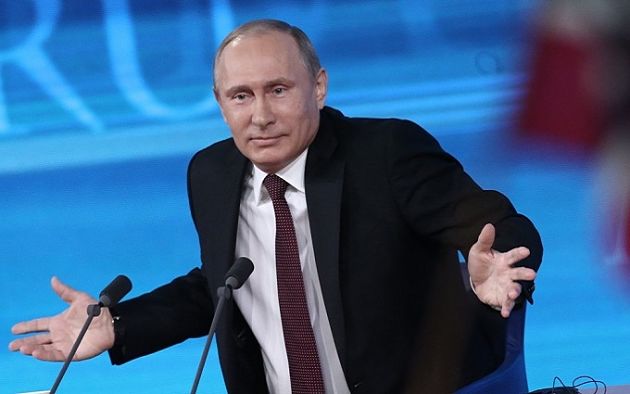While the leaders of most countries are personally addressing their nations and calling for unity in the face of the challenges posed by the coronavirus pandemic, the vaunted “national leader” of Russia prefers to communicate with his subordinates and make pre-planned visits to “Potemkin villages” such as the one witnessed today.
This is happening at a time when not only the country’s medical infrastructure, with the exception of a few wealthy cities such as Moscow and Sochi, is unprepared for the pandemic, but also the country’s economy. A significant portion of small businesses, and thus the middle class and its remnants – the real ones, not the fictitious 70% who, according to Putin, live on a monthly salary of 17,000 rubles – are threatened with bankruptcy because of the quarantine measures.
In economically developed countries, under such circumstances, governments provide massive support to businesses and citizens. Tax and rent payments are deferred, owners are compensated for their losses, allowances are given to the unemployed or those who have lost their jobs, and so on. Of course, all this requires money. So why is there a shortage of money in resource-rich Russia? Have they been spent on wars in Syria, Donbass and Libya? On the construction of the Crimean bridge? Squandered on propaganda empires like Simonyan, Soloviev, Kiselev and their numerous lesser counterparts? Or on the purchase of Abramovich’s yachts, Sechin’s fur warehouses, and other pleasures of life for representatives of the ruling regime?
The number of people who want to ask the “national leader” all these questions will continue to grow. Especially in view of the fact that he himself has aggravated his situation. First of all, he provoked the collapse of oil prices and the devaluation of the ruble by withdrawing from the OPEC agreement at the very moment when the country urgently needed money. And second, the political crisis caused by divisive constitutional amendments and the decision to allow an unlimited number of terms in power, just when trust and civic unity between the government and society are needed.
It’s no wonder that Putin is in no hurry to address the people directly in such a situation, since public opinion polls clearly show that any such address, even in the seemingly convenient format of short interviews with TASS, has the opposite effect – it breeds disappointment and rejection. Putin found formal arguments to address the Duma deputies, who do not need any arguments from him, considering that its chairman, Vyacheslav Volodin, declared that not oil and gas, but Putin himself is the main asset of Russia. However, it will be difficult to answer the question why this asset only aggravates the problems of his country instead of solving them, if one does not address the impoverished population, but rather the wealthy deputies, who are secured for several generations to come.
Therefore, the question of why Putin does not address the people of Russia today seems to be rhetorical.

